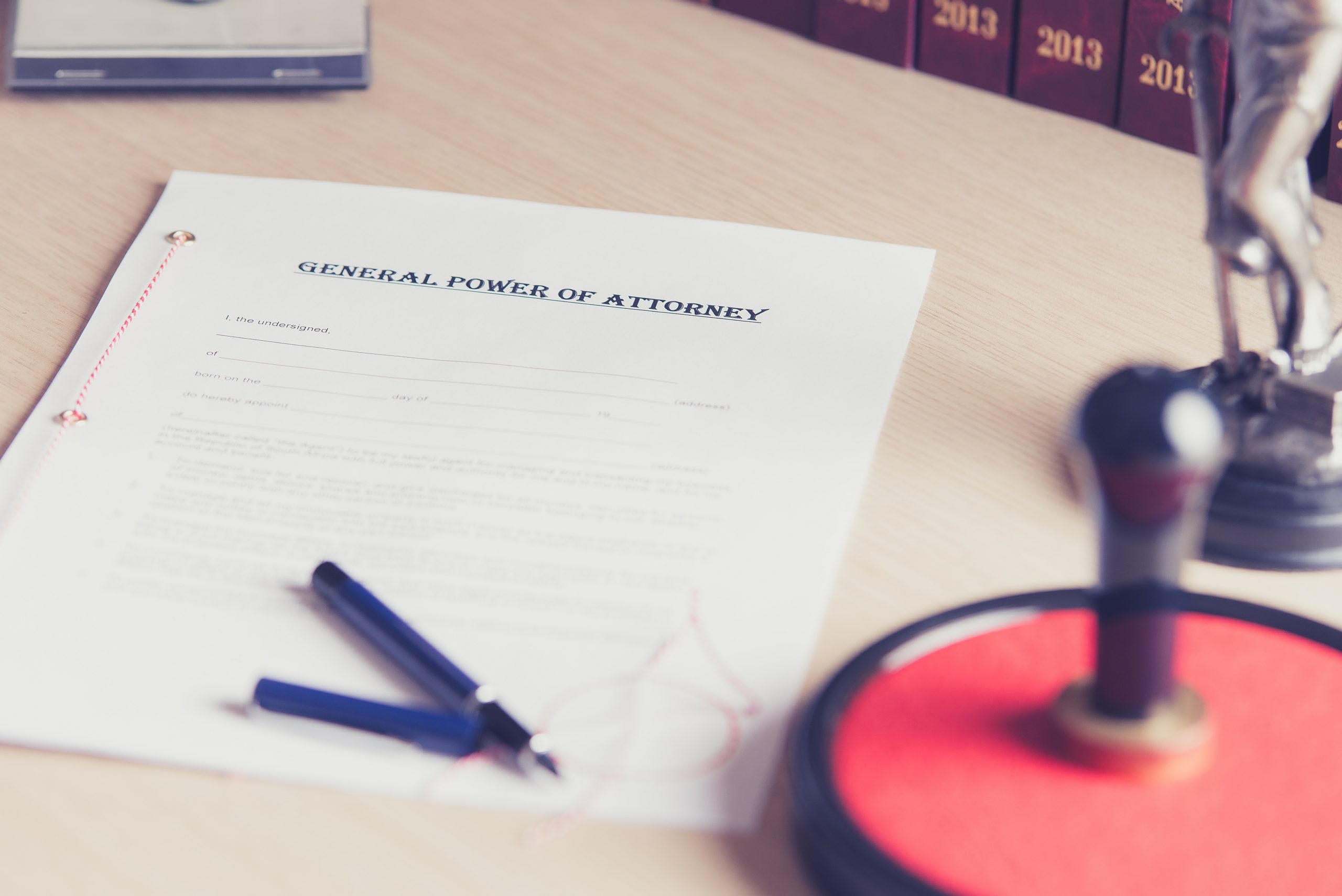Understanding General vs Special Power of Attorney
What Is the Power of Attorney?
Before understanding the differences between a special and general power of attorney, you must first understand what power of attorney is. Power of attorney is where someone signs a legal document to allow another person to make all or some of her or his decisions (general vs specific power of attorney). Almost any situation requires power of attorney. Frequent needs include medical attention, estate planning, business, personal finances, or legal reasons.
Medical
A medical power of attorney refers to the idea that if a person becomes unresponsive or unable his or her own decisions regarding medical treatment, it becomes another person’s (the agent) responsibility.
For example, if someone is brain dead, that person cannot decide whether to turn off life support machines. Without a power of attorney in place, the responsibility usually falls to the next of kin, such as a spouse or child of age. Giving someone medical power of attorney that applies to this specific context allows that person to decide whether to turn off the machines, taking the weight off the family’s shoulders.
Estate
Estate planning power of attorney refers to when someone dies without a last will and testament that gives end-of-life instructions. The power of attorney would divide up assets and take care of anything the deceased left behind.
Business
It is smart to have a business power of attorney set up in case you become incapacitated. For example, your business partner could have control over your business-related assets. Then you do not have to worry about your partner losing access to certain accounts.
Financial
You can give financial power of attorney to someone to make payments in your stead, close or open accounts, and make general financial decisions. For instance, you could give your accountant the power of attorney in case you require hospitalization or if you leave the country for an extended period. Your accountant would have the power to cancel bills you do not need, such as cable, and take care of taxes or other payments, depending on the powers given.
Legal
A legal power of attorney gives another person the right to make legal decisions for you. If you become incapacitated, the person given power of attorney can communicate with your lawyer on your behalf, sign legal documents, open cases, appear in court, etc.
Other Uses for Power of Attorney
Giving someone power of attorney can be incredibly beneficial, as it can reach beyond the incidents listed above. If you could not take care of yourself, the power of attorney can also allow these responsibilities to continue:
- Maintaining family finances
- Paying rent
- Paying for dependents’ expenses
- Insurance-related transaction
- Donating to charities and causes you care about
Power of attorney is a very wide-ranging power. You should always consult a lawyer before signing documents.
What Power of Attorney Does NOT Mean
Power of attorney does not mean that you signing away your rights to someone else. Your power of attorney has specific clauses that indicate when certain things can happen.
Learn more about this in the general vs special power of attorney sections.
What Is the General Power of Attorney?
A general power of attorney gives the agent (whomever you sign the rights to) the ability to make decisions regarding your property and financial affairs while you are incapacitated. A general power of attorney cannot continue once you become incapacitated; at such a time, a special power of attorney would take over.
What Is the Special Power of Attorney?
Special power of attorney narrows the choices the agent can make. It becomes active when conditions outlined in the power of attorney become active. You can make a variety of special powers of attorney that all have different agents. This could be from financial to business and legal. For example, you could limit your financial power of attorney to paying bills and cashing checks but restrict the agent’s ability to open or close accounts.
Common Power of Attorney Situations
Power of attorney is useful for more than just situations where you become mentally or physically unable to make decisions or sign documents. You might plan on going away for a significant amount of time. It is useful to give someone power of attorney to maintain your home and tend to your financial obligations. Your chosen power of attorney could also pay your taxes or change your retirement plans. Additionally, if you were to disappear, having a power of attorney set up gives someone, like your spouse, the right to access your accounts.
Essentially, giving someone special or general power of attorney is beneficial in a wide variety of situations. Get in touch with us today to have all your questions answered and address any concerns you may have.
When to Hire an Attorney
Setting up a power of attorney while you are healthy is the best thing to do. Even if you have no reason in the foreseeable future to need a power of attorney, it is a good idea to have one ready to become active should you become incapacitated.
Work With an Experienced Local Lawyer
Submit a request online or call us today at (866) 345-6784 to get in touch with an experienced lawyer in your area!

